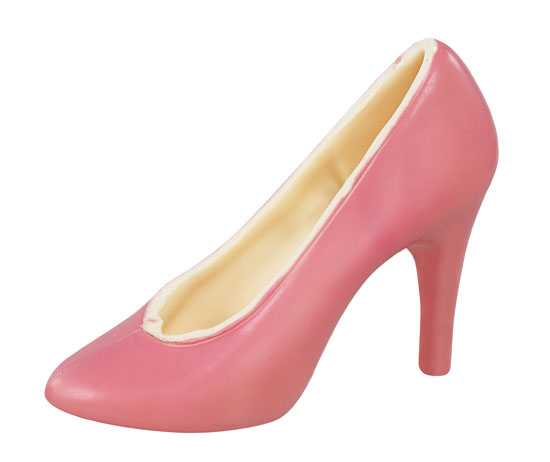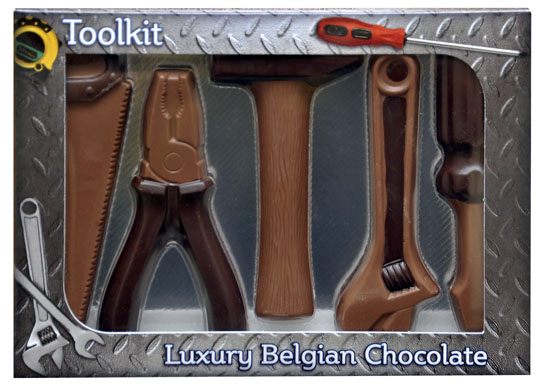“Cocoa beans are like grapes,” says Peter Martin, “It’s about the quality of the soil and variations in the weather which mean a harvest will taste slightly different each year. I look at chocolates which have been made with blends of beans from a variety of sources by the finest continental chocolatiers, because my aim is to bring to the public something different. I have a passion for finding the best product.”
He’s the owner and managing director of The House of Sarunds, the UK’s largest independent UK supplier of continental confectionery, including loose chocolates from Belgium and Holland. His background was in the financial markets in the City of London, but now after more than twenty-one years of experience since acquiring the company, he can be described as an authority. And an enthusiast.

It was a gift from his wife, Jackie Martin, on Christmas Day,1997, which would prove formative in his decision to leave banking behind. “She gave me the book The Land’s End to John O’Groats Walk by Andrew McCloy, which so inspired me I took a sabbatical and decided to follow his example, covering 1200 miles in ten weeks,” Martin explains. “I discovered that I lived in an amazing country which I had never properly seen, and I was also afforded the time I needed to reflect on my life. When I got back I decided I should test all I had previously learnt and experienced from the ‘money go round’ of the city and start running a business of my own.”
With his wife, Martin first dipped a toe in the chocolate fountain with the purchase of a small High Street tea shop which also sold continental chocolate. “Jackie always had this passion for gastronomy,” he explains.

During a visit to their chocolate importer, The House of Sarunds, Martin learned the company’s founder was retiring. “Robert Verdonk had recognised a void for high-quality confectionery in the UK market,” Martin attests, “and although the business was finding it tough at the time, I realised how valuable the opportunity to offer fresh continental chocolates to UK retailers was, so I bought the company in 1999.”
To raise the capital, Martin was able to sell shares to his friends in the city. “They knew of my track-record of spotting gaps in a market,” he says. “The location also meant my wife would be able to be nearer to her parents, and after a year of acquiring the new business we decided to sell the shop.”
Back in 1999, turnover was £1.2million. Today it’s more than £11million. And despite the seemingly irrevocable march towards digital totality – roughly 50% of the orders are received online and 25% via email, with the remaining quarter made over the phone – Martin says there is still a need for him to travel to Europe to talk in person to the chocolatiers.
“Business works on trust, and you can’t gain that from someone just by communicating on line. It’s also impossible to find everything out online, especially in this business, and locating undiscovered talent is essential to enable my customers (mainly retailers and the hospitality sector) to offer their public something different.”
Such as Christmas mince pie fudge, chocolate shoes, sherbet fountain flavour black liquorice.

So how does acquiring and building a business located in the countryside differ from an urban scenario? “What I discovered in having a rural setting is that if you show you have the right intentions, people tend to be more accommodating and help you out,” says Martin. “For example, when we moved into our current premises in 2001, initially the landlord let us have the premises rent free until we were making enough to pay him rent. That may be more of a reflection on his decency rather than being in a rural location, but a business in our financial position at the time wouldn’t expect to get rates or treatment like that in a city.”
A difference in staff mentality – in terms of longevity/loyalty – is also something Martin has noticed. “When we bought The House of Sarunds nearly twenty-two years ago, we inherited seven staff. The person who manages the warehouse has been with the business now for twenty-nine years; the receptionist for twenty-seven years; and the office manager twenty-five.
“Today we have fifty-four employees, and most actually live close enough to walk to work. But that also means that the pool from which a growing business can pull people isn’t very big.”

“Continuity is important,” says Martin, “but the owner-manager needs to be challenged in their thinking, that people coming into the business make suggestions about how the company could be doing things differently based on their experience.”
But actually, the rural setting has influenced, indeed shifted his ambition for the business. “When we acquired Sarunds, being ex-City meant I had the mindset of taking it on for three to four years, making it profitable, and then selling it on. But as time went on, I realised that the location meant it had become part of my lifestyle,” Martin reflects. “Over the years it’s also evolved into a bit of a family business as well; in addition to my wife being a director, our son-in-law is now the chief operating officer.”
Researched and written for Ward Goodman by DECISION magazine











